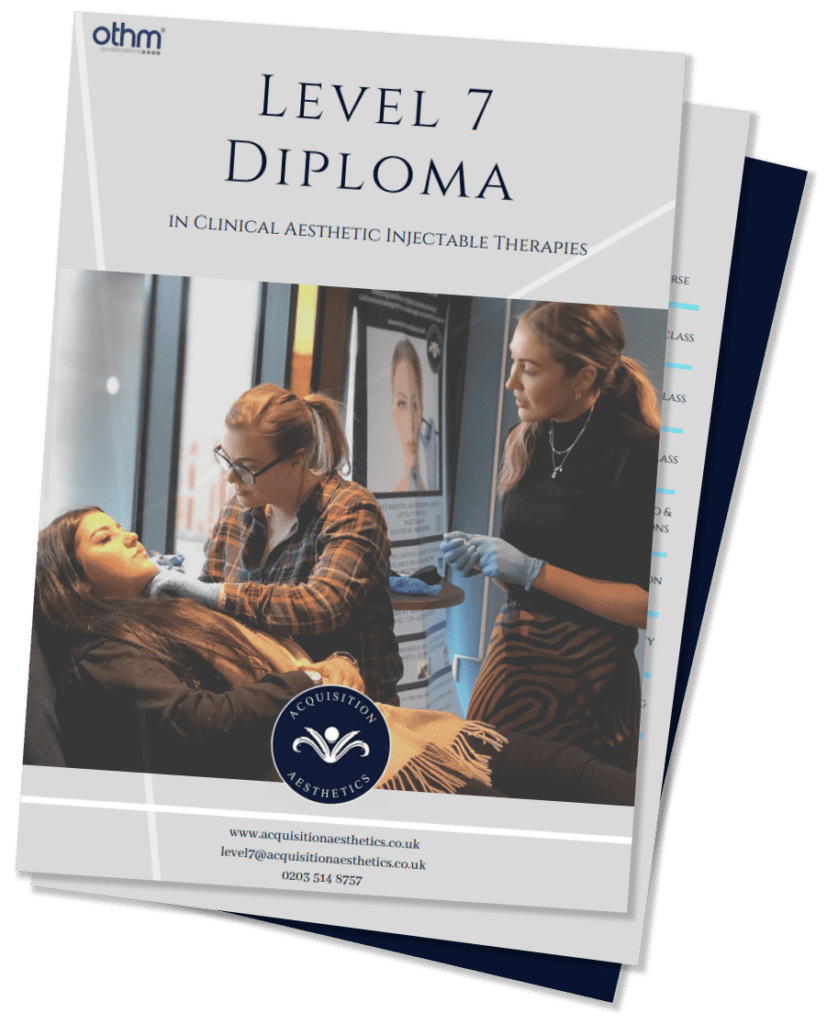Most industries have to wade through the waters of controversy at one time or another, none more so than those connected with health, or pharmaceuticals, especially when the subject is intertwined with celebrity culture. In this regard therefore, the aesthetics industry is often under scrutiny, both in terms of its practices and its practitioners, and especially when considering the use of botulinum toxin.
Booming industry
With non-invasive cosmetic procedures generating $16.7billion per annum; the aesthetics industry is booming and is very much at the forefront of the public’s awareness. Naturally therefore, various topical issues relating to aesthetics are frequently being discussed both within the industry itself, and in the news or media. One such issue currently under the microscope is that of age and the administering of botulinum toxin treatments.
Regulations
Tighter general regulations on non-surgical interventions were implemented in the industry following the 2013 PIP breast implant scandal, after a report by Health Education England (HEE) outlined the required levels of competence for all treatments in the industry. A regulatory framework was created collaboratively between The British College of Aesthetic Medicine (BCAM), the British Association of Cosmetic Nurses (BACN), the British Association of Dermatologists (BAD), the British Association of Aesthetic Surgeons (BAAPS) and the British Association of Plastic, Reconstructive and Aesthetic Surgeons(BAPRAS), which is enforced and overseen by two independent bodies, the Joint Council for Cosmetic Practitioners (JCCP) and the Cosmetic Practitioners’ Standards Authority (CPSA.) All of this means that there are more stringent general regulations in place, limiting those who are able to satisfy the necessary standards for practice to those who are suitably qualified, and thereby increasing the safety of patients.
Safe advertising
Other groups and agencies are in place to help ensure the safety and wellbeing of patients in respect of botulinum toxin, as well as how information is delivered to the public. The Medicines and Healthcare products Regulatory Authority (MHRA) is a Government agency responsible for the licensing of medicines. They ensure that medicines and medical devices work, and are acceptably safe. They have produced the ‘Blue Guide – Advertising and Promotion of Medicines in the UK’ in order to ensure medicines are not ‘treated as an ordinary general commodity’ due to the potential associated adverse effects. The work of the MHRA is supported by the UK Code of Non-Branded Advertising and Direct and Promotional Marketing (CAP Code), which outlines the advertising rules for marketing communications. These rules are then enforced by the Advertising Standards Authority (ASA), the UK’s independent advertising regulator. These groups may be involved in the crackdown on inappropriate advertising of toxin treatments on social media and other online platforms, for instance. Such advertising can arguably encourage young people to seek out these treatments which is considered irresponsible and unethical.
Prescription Only Medicine (POM)
Botulinum toxin, commonly known under the brand names of Botox®, Azzalure®, and Bocouture®, is a Prescription Only Medicine (POM) and as per the aforementioned CAP Code and the Human Medicines Regulations 2012 – it is an offence to promote it to the public. This means that the decision to provide toxin treatment is a medical one requiring a prescription from a qualified healthcare professional after they’ve deemed it clinically indicated from a face to face consultation.
GMC view
In terms of the undeniable responsibility of the prescribers, the General Medical Council (GMC) states, “You must ask the patient why they would like to have the intervention and the outcome they hope for, before assessing whether the intervention is appropriate and likely to meet their needs.” It goes on to say, “If you believe the intervention is unlikely to deliver the desired outcome or to be of overall benefit to the patient, you must discuss this with the patient and explain your reasoning. If, after discussion, you still believe the intervention will not be of benefit to the patient, you must not provide it… when you discuss interventions and options with a patient, you must consider their vulnerabilities and psychological needs.” This makes it very clear that it is the responsibility of each individual practitioner to assess a patient’s motivation for botulinum toxin treatment, alongside their suitability and the outcome that is to be reasonably anticipated. Naturally, younger individuals are considered more ‘psychologically vulnerable’ and this should be appreciated by any attending practitioner.
How old?
Beyond the requirement of a prescriber’s authorisation, however, there is no overarching restriction on the provision of toxin treatments in terms of a patient’s age. Currently in the UK therefore, there are no legal age restrictions on receiving anti-wrinkle treatments with products such as Botox® or Azzalure® – meaning in theory, a patient of any age can walk into a clinic and, if the clinician is prepared to undertake the procedure, have these treatments performed. Although the manufacturers generally stipulate ‘use is not recommended in individuals under 18 years of age’, the ultimate decision to treat lies with the prescriber. This decision should be underpinned by a clinical indication that demonstrates treatment to be in the patient’s ‘best interests’ but in the current climate of overwhelming commercial demand driven by the power of social media amongst other environmental forces, decisions may be contaminated by other agendas…
In the press
One recent article looked at the possible dangers of this largely unregulated area of the market and the ease with which teenagers and young people are able to access toxin treatment, especially when considering the apparent rise in self-esteem issues among this demographic. The author posed as an 18-year-old wanting botulinum toxin treatment, visiting a number of clinics to see if anyone questioned or challenged her age or motives, and the mixed results led on to a discussion on the responsibility of clinics and practitioners to ensure treatments are reasonable and age-appropriate.
‘Baby Botox’
Also worth noting is the rise in popularity of ‘Baby Botox’ treatments – smaller doses of toxin, administered more regularly, and advertised as being more precisely injected in order to produce a natural and subtle result. The potential danger here is that the provision of this treatment, and even the term that has been coined for it, may trivialise this procedure and implies the treatment is somehow less of a commitment than the more common higher dose of Botox®. It is also promoted as a preventative treatment, targeted at patients in their twenties. As one plastic surgeon was quoted in an article, “’Baby Botox’ is designed for patients who are on the younger end of the spectrum of Botox® users who wish to prevent the formation of wrinkles.” The availability of this treatment is likely to contribute to younger patients seeking treatment, who may feel this is something they need to have in order to avoid wrinkles as they age.
Current industry standards
In another recent article by allure magazine, several aesthetic surgeons were asked for their practice when considering age and most said it depended entirely on how the patient presented. Commonly they reported not treating anyone under the age of 25, though they did add that this is primarily because there normally isn’t a cosmetic need for anti-wrinkle toxin treatments before this age. A lot of practitioners interviewed said they would consider each patient as an individual and treat them on a case by case basis, but would not treat a patient asking for it if they ‘didn’t need it’; which is reassuring and in line with the guidance. Generally speaking, most sensible practitioners concerned with best practice are calling for increased regulation of the industry in general and the topic of age restrictions is likely to be a natural extension of this; sure to be discussed at length during considerations by the regulators.
Best practice
As ever, Acquisition Aesthetics advocates only the most ethical and responsible practice in cosmetic injectables. The academy only trains fully registered healthcare professionals and as such, every delegate understands the imperative need for obtaining fully informed patient consent before conducting toxin treatments. Acquisition Aesthetics always endeavour to reinforce their values in all delegates, providing robust theoretical knowledge on every course, alongside comprehensive hands-on practical training, with the aim of producing ethical, competent and confident aesthetic practitioners.
If you are interested in training with us, we would love to see you on one of our courses. Call our friendly team on 020 3389 5611 or email contact@acquisitionaesthetics.co.uk for more information.


